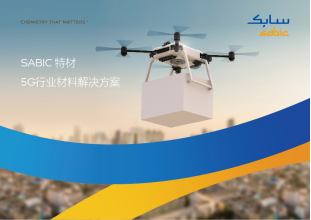
At the 2020 3rd 5G Terminal Processing Industry Chain Exhibition (CPME2020) in Dongguan, China, Saudi Basic Industries Corporation (SABIC) first launched a high-performance material product portfolio designed for 5G base stations, terminals and mobile devices. In addition, SABIC technical experts also conducted 9 product demonstrations at this exhibition, focusing on a variety of special materials including LNP™ modified materials and copolymers, ULTEM™ resins, and NORYL™ resins and oligomers. These solutions are designed to meet major industry challenges such as thermal management and radio frequency performance, thereby achieving advantages such as lightweight, cost reduction, and productivity increase. SABIC introduced the characteristic application fields of these materials to the audience at the booth.
"SABIC's focus on innovation allows us to always lead the trend of the 5G era, thereby benefiting our customers," said Martin Tam, Business Director of SABIC's Specialty Materials Division, Asia Pacific. "As we demonstrated at this 5G terminal processing industry chain exhibition, our innovative solutions for specialty thermoplastics and oligomers are suitable for a variety of challenging 5G applications. Our advanced material technology helps ensure The reliable performance of parts and accessories at higher frequencies and large-scale data entry is the key to fully exploiting the potential of 5G communications."
Special materials improve 5G design effects and improve performance
As SABIC introduced at this 5G terminal processing industry chain exhibition, SABIC's LNP modified materials and copolymers help engineers improve the design effect and performance of active antenna units, thereby obtaining customized dielectric constants (Dk) and loss factor (Df) values and excellent weather resistance.
Another theme product that SABIC focused on at the 5G terminal processing industry chain exhibition was NORYL resin (modified polyphenylene ether). This resin has a very low specific gravity, and has non-bromine and non-chlorine flame retardant, hydrolytic stability, dimensional stability, acid resistance, alkali resistance and excellent dielectric properties. NORYL resin has been successfully applied to multiple 5G communication applications including full-frequency GPS antennas, microwave antenna reflectors, cooling fans in baseband processing units (BBU), and millimeter wave radar radomes. SABIC presented a full range of such applications at this exhibition.
In addition, SABIC’s highly heat-resistant ULTEM resin also has unique performance characteristics: excellent dimensional stability, infrared transmittance, low dielectric constant (Dk) and dielectric loss (Df), stable in a wide temperature range, and Good metallization ability. The main applications of such polyetherimide (PEI) resins in 5G components include optical fiber connectors and optical module lenses, radio frequency connectors and radio frequency filter components. The newly launched products with high heat resistance and low coefficient of thermal expansion (CTE) are suitable for the assembly process of surface mount technology (SMT), which helps to improve production efficiency and can be used to produce connectors and cavity RF filters.
With the help of NORYL oligomers, developers can prepare high-speed copper-clad laminates, enabling multilayer printed circuit board designs with ultra-low insertion loss. SABIC's dianhydride special resin monomer can provide polyimide film manufacturers with unique properties such as improved dielectric properties and copper foil adhesion.
Customer collaboration promotes the birth of new applications
Various advanced materials introduced by SABIC have been widely used in 5G communication equipment and component manufacturing. SABIC cooperates closely with customers to jointly develop a variety of innovative designs and provide a wide range of value-added services, including material recommendation and sampling, customized new material development, processing inspection and design support, material data for design simulation, and testing and testing of molds. Provide on-site technical support for process troubleshooting.
.jpg)
.jpg)